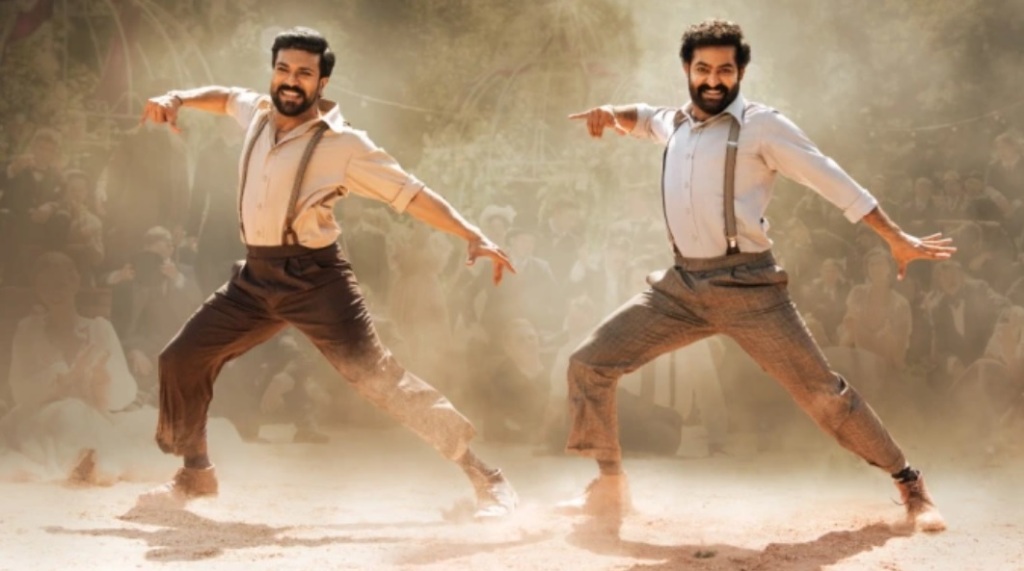
If you know cinema, then unless you’ve seen RRR you only think you know cinema.
S. S. Rajamouli’s delirious blockbuster is equal parts quasi-historical, bromance, musical, melodrama, and romance, mixed with the most insanely and thrillingly over-the-top action sequences.
The director’s Baahubali franchise will give you some idea what to expect, but the dial has been turned up to eleven for this John Woo on speed, three-hour slice of delirium.
RRR (“Rise Roar Revolt”), is an anti-colonial fable and a fictional story following two real-life Indian revolutionaries, Alluri Sitarama Raju (Ram Charan) and Komaram Bheem (N.T. Rama Rao), and the twists and turns of their imagined bromance as they fight against the British Raj. The cast also features Ray Stevenson and Alison Doody as sneeringly sadistic Brits whose kidnapping of a young Indian child set off the chain of events.
It’s almost impossible to spoil how wild Rajamouli’s film becomes, but when you see Bheem endure a Braveheart-style scene of public flogging and torture while breaking into a musical number, still managing to feel entirely authentic to the crowd-enflaming emotion of the scene, you understand you’re in the hands of a filmmaker at the height of his powers. That this same character wrestled a tiger to the ground earlier in the film and will go on to beat a man to a pulp with (with… not on) a motorcycle will give you some idea of the sheer exuberant nature of the violence meted out here.
And if you think violence is all you get in RRR then, once again, you only think you know Indian cinema.
The soon-to-be iconic party scene, highlighting the song Naatu Naatu, serves as both a blunt but joyful plot device to highlight the despicable racism of the British in India with a breathless and intoxicating dance sequence.
If any of this sounds even remotely hyperbolic, I assure you, it’s really not. Okay, perhaps my opening statement, but even then… only just.
Ideally seen where it belongs on the big screen (though thankfully Netflix have made it available for wider exposure on their streaming service, albeit in Hindi rather than the original Telugu), Rajamouli’s ultra-nationalistic and hyper-stylised epic is what the art of cinema was created for, pure spectacle that is all at once hugely personal and hugely thrilling.
Image: DVV Entertainment

